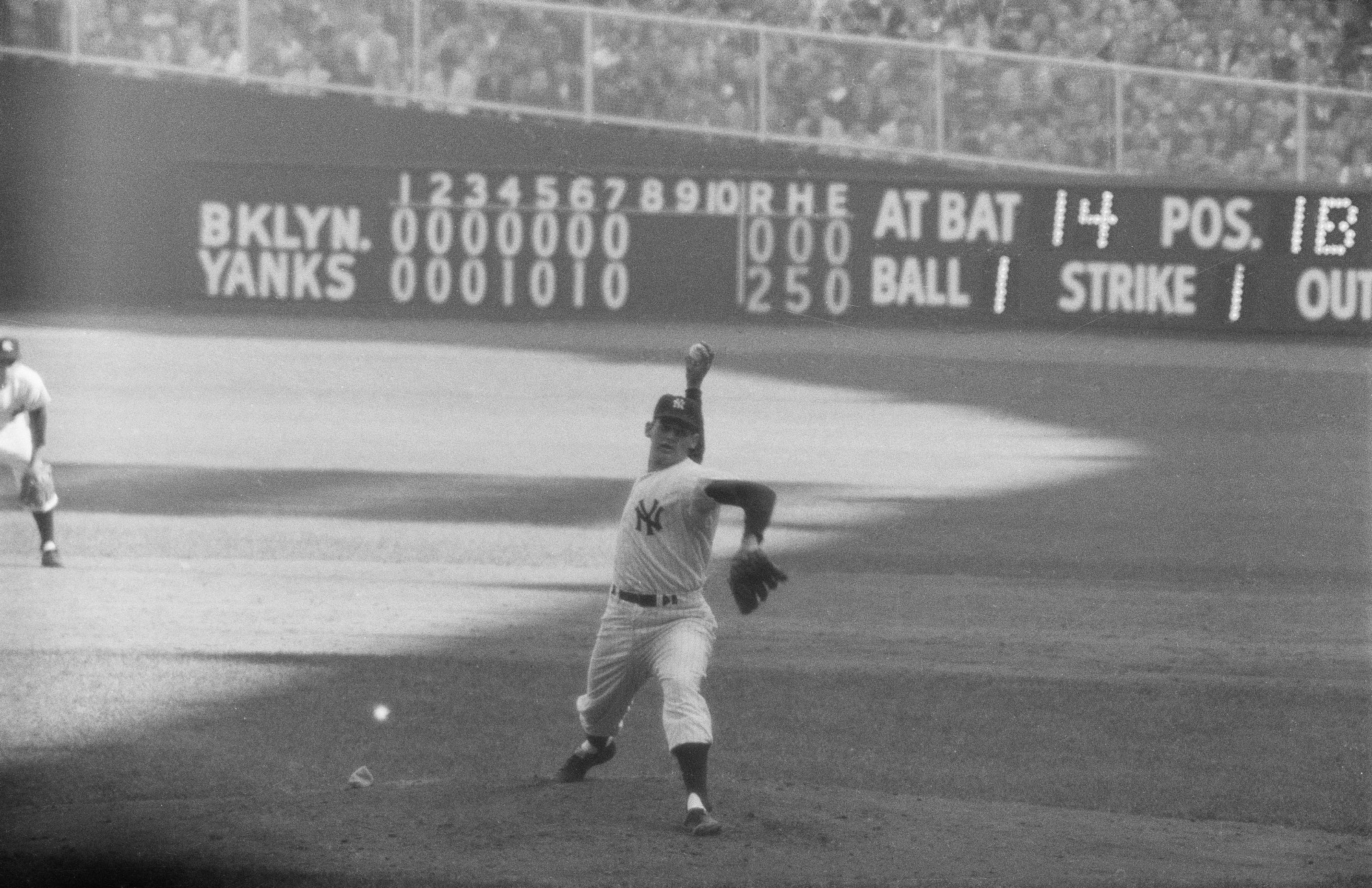Nostalgic America
20 Of The Most Iconic Sports Moments Of The 20th Century
By Bruce Berns · October 29, 2024
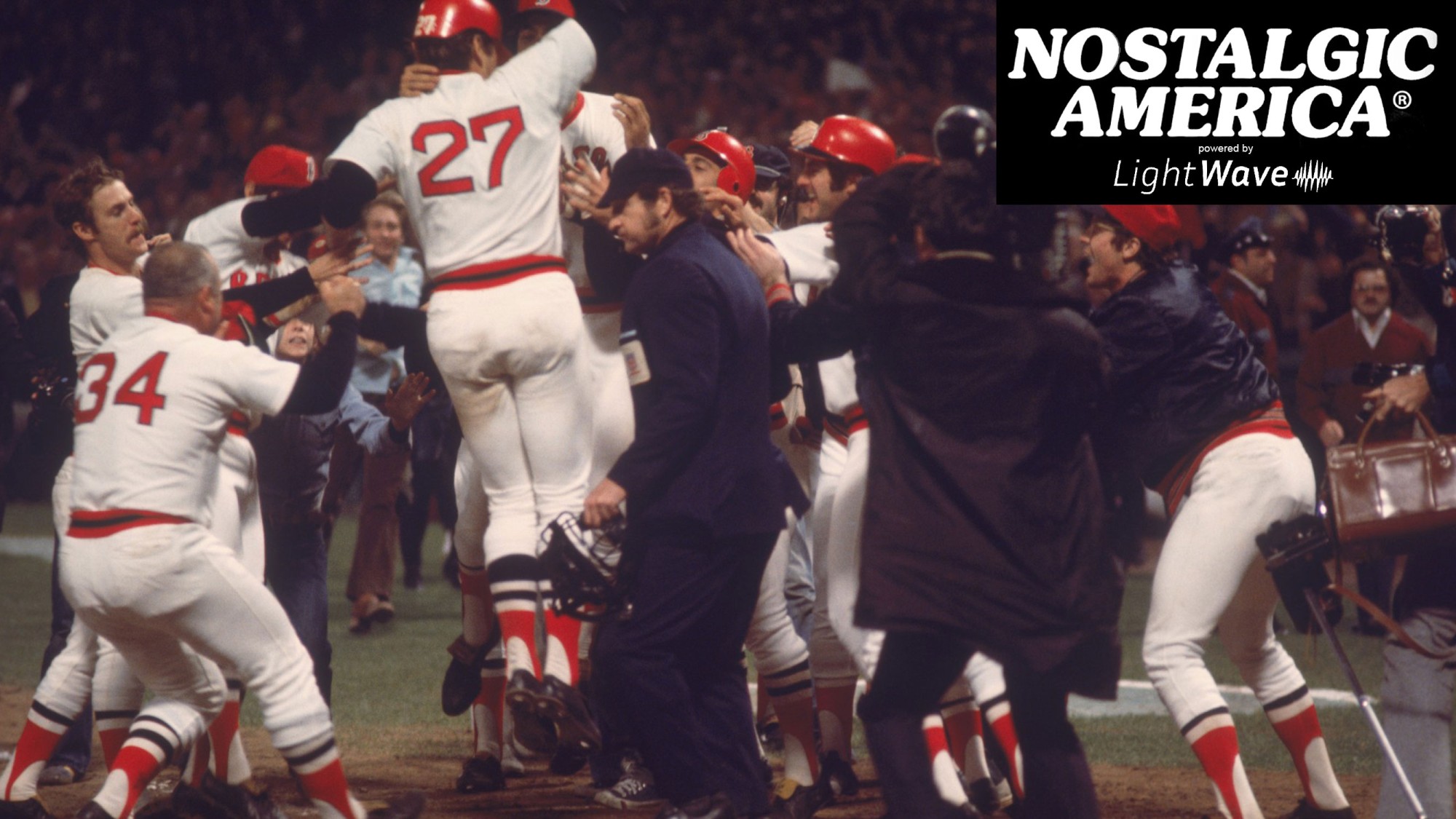
From Don Larsen's perfect World Series game to the revolutionary Fosbury Flop, these extraordinary feats have shaped not just their respective sports, but our collective cultural memory. Through dramatic game-winners, record-breaking performances, and innovative breakthroughs, these 20 remarkable moments showcase athletics at its most transcendent.
They remind us why sports captivate billions worldwide, delivering stories of triumph, innovation, and sheer athletic brilliance that continue to inspire new generations of fans and athletes alike. Getty Images / Nostalgic America, Inc.
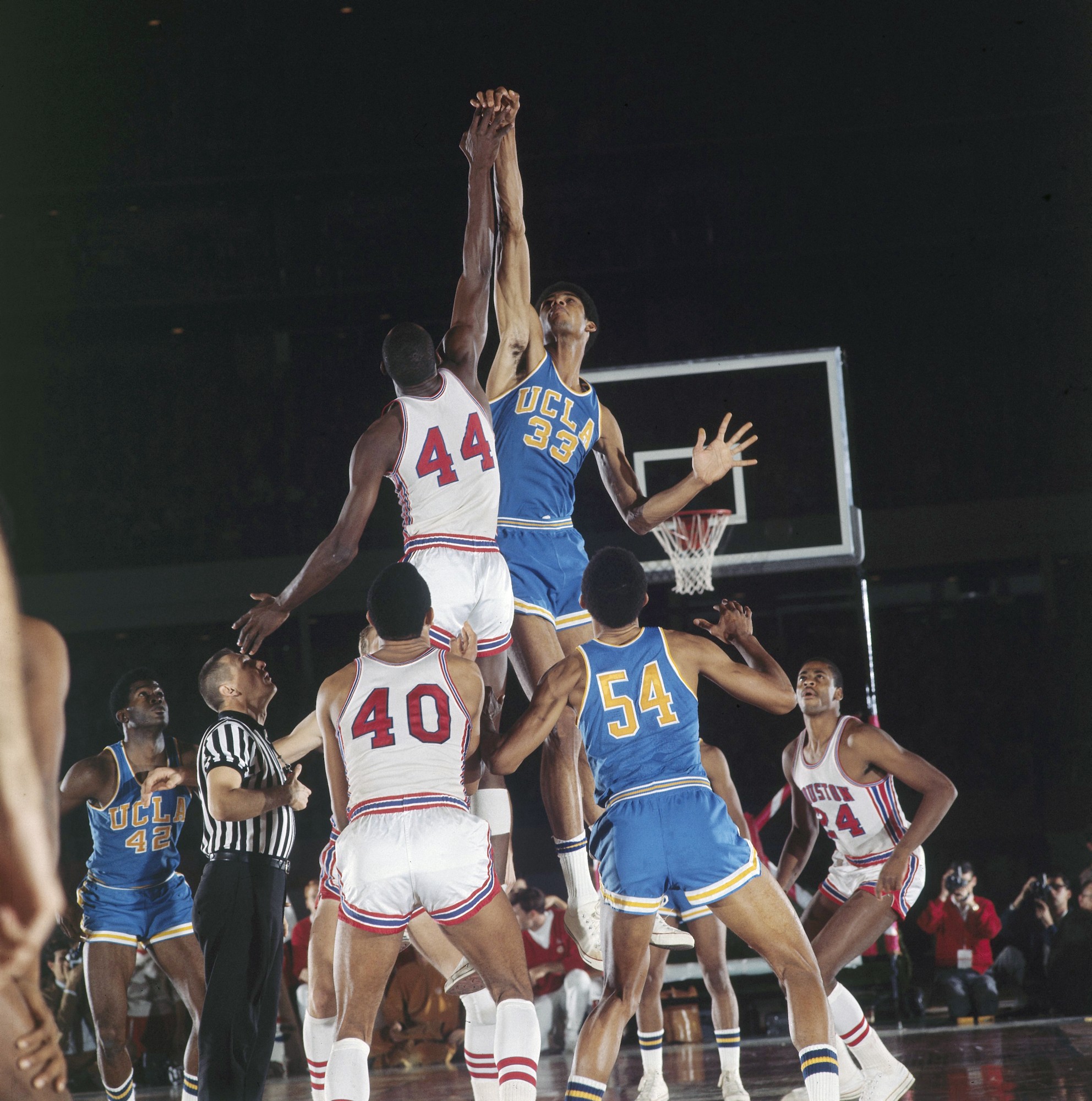
UCLA vs. Houston at the Astrodome (1968)
On January 20, 1968, UCLA and Houston played a historic college basketball game at the Astrodome, dubbed the "Game of the Century." It was the first regular-season game broadcast nationally and attracted over 52,000 fans, the largest crowd ever for a basketball game at the time. Getty Images / Nostalgic America, Inc.
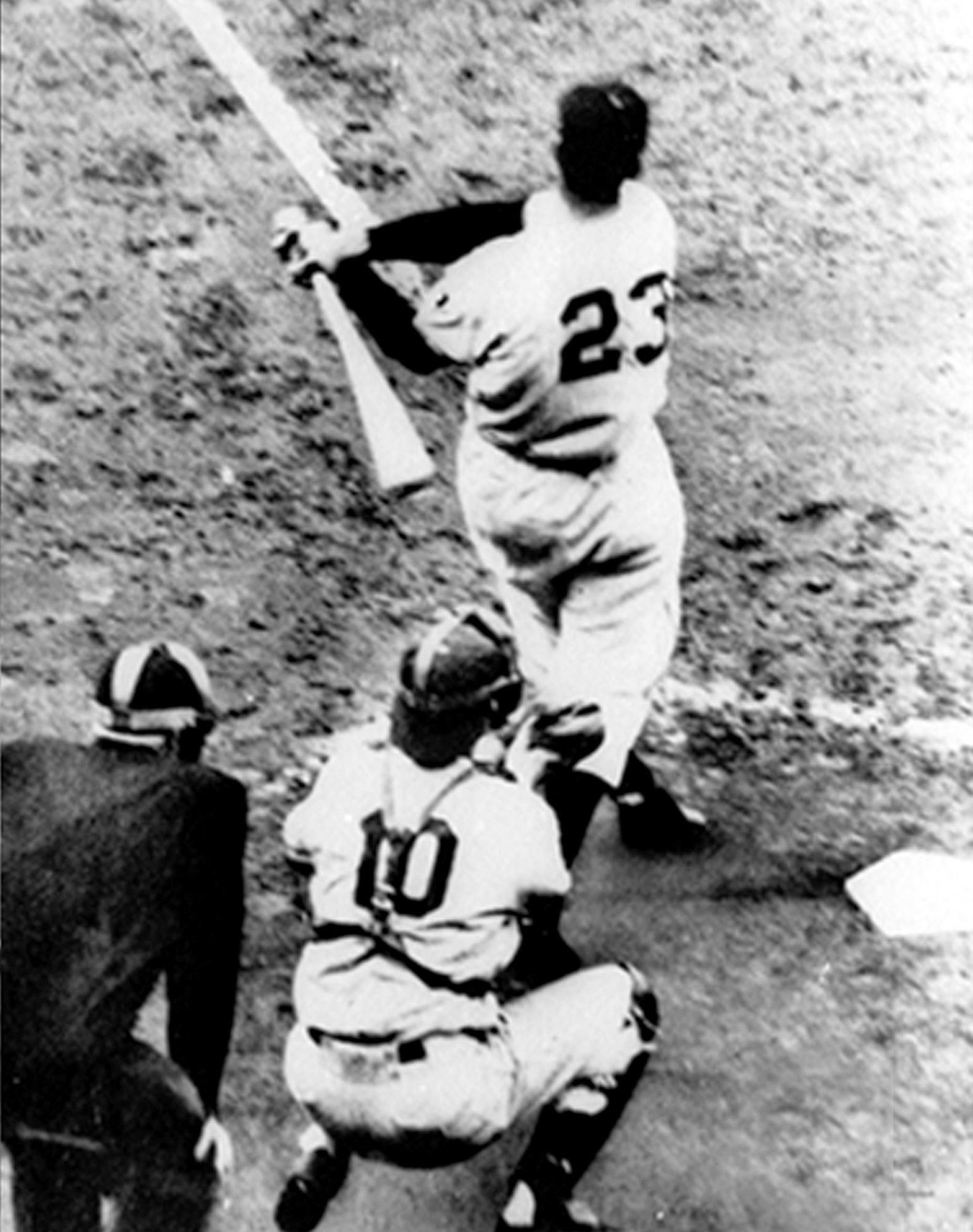
Bobby Thomson's Home Run (1951)
Bobby Thomson's "Shot Heard 'Round the World" is one of baseball's most famous moments. On October 3, 1951, Thomson hit a three-run home run in the bottom of the ninth inning, leading the New York Giants to a 5-4 victory over the Brooklyn Dodgers in the National League pennant-deciding game. The Giants had been trailing the Dodgers by 13 games earlier in the season but staged a historic comeback. Thomson's dramatic homer off Ralph Branca won the National League pennant, sending the Giants to the World Series and becoming an enduring symbol of baseball’s dramatic, unpredictable nature. Getty Images / Nostalgic America, Inc.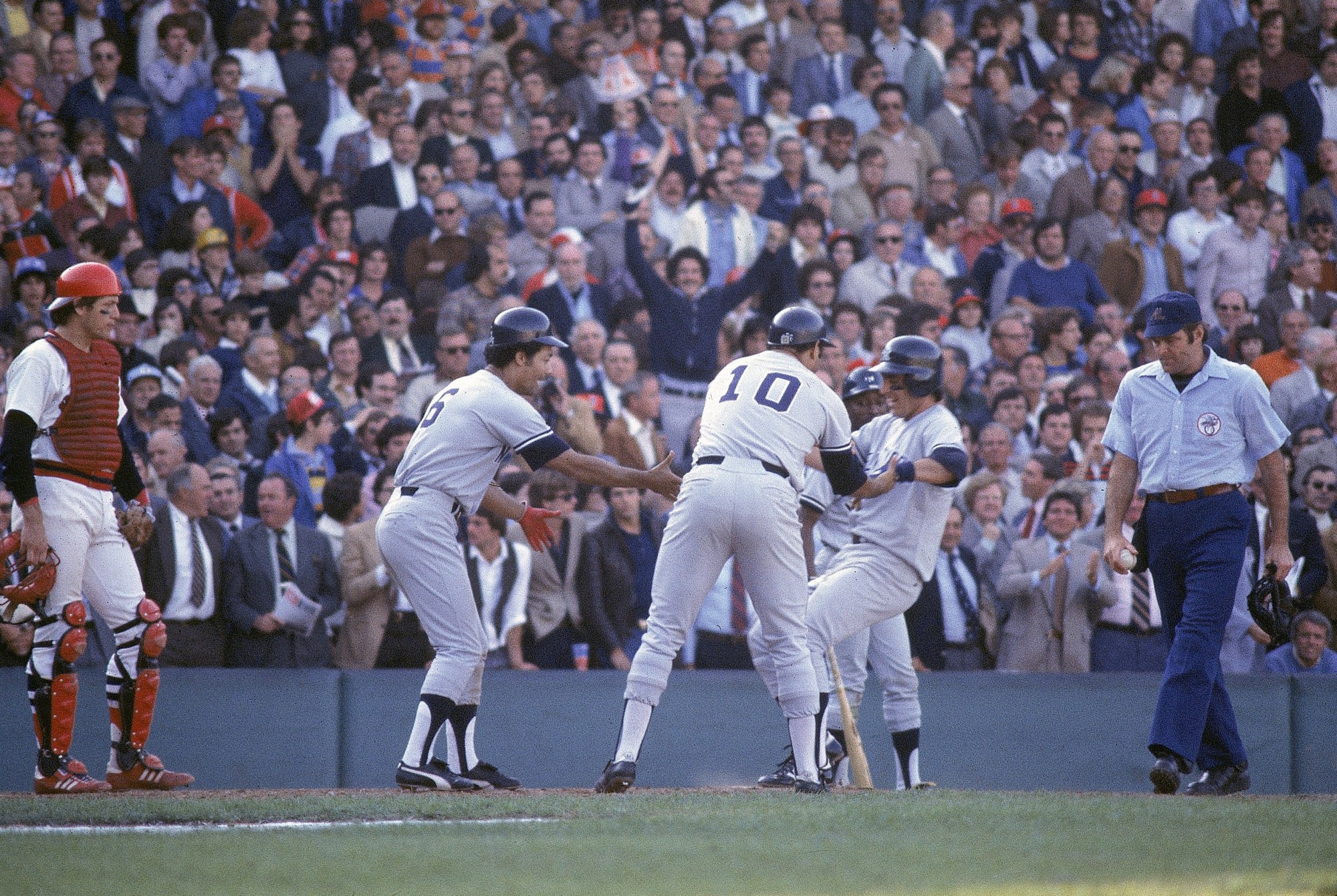
Bucky Dent's Home Run vs. the Red Sox (1978)
On October 2, 1978, Bucky Dent became an unlikely hero for the New York Yankees in a one-game playoff against the Boston Red Sox for the American League East title. Trailing 2-0 in the seventh inning at Fenway Park, Dent hit a three-run home run over the Green Monster, giving the Yankees a lead they would not relinquish. The Yankees went on to win 5-4, ultimately advancing to the World Series, where they would become champions. Dent's homer is remembered as a crushing blow to Red Sox fans and a pivotal moment in one of baseball’s fiercest rivalries. Getty Images / Nostalgic America, Inc.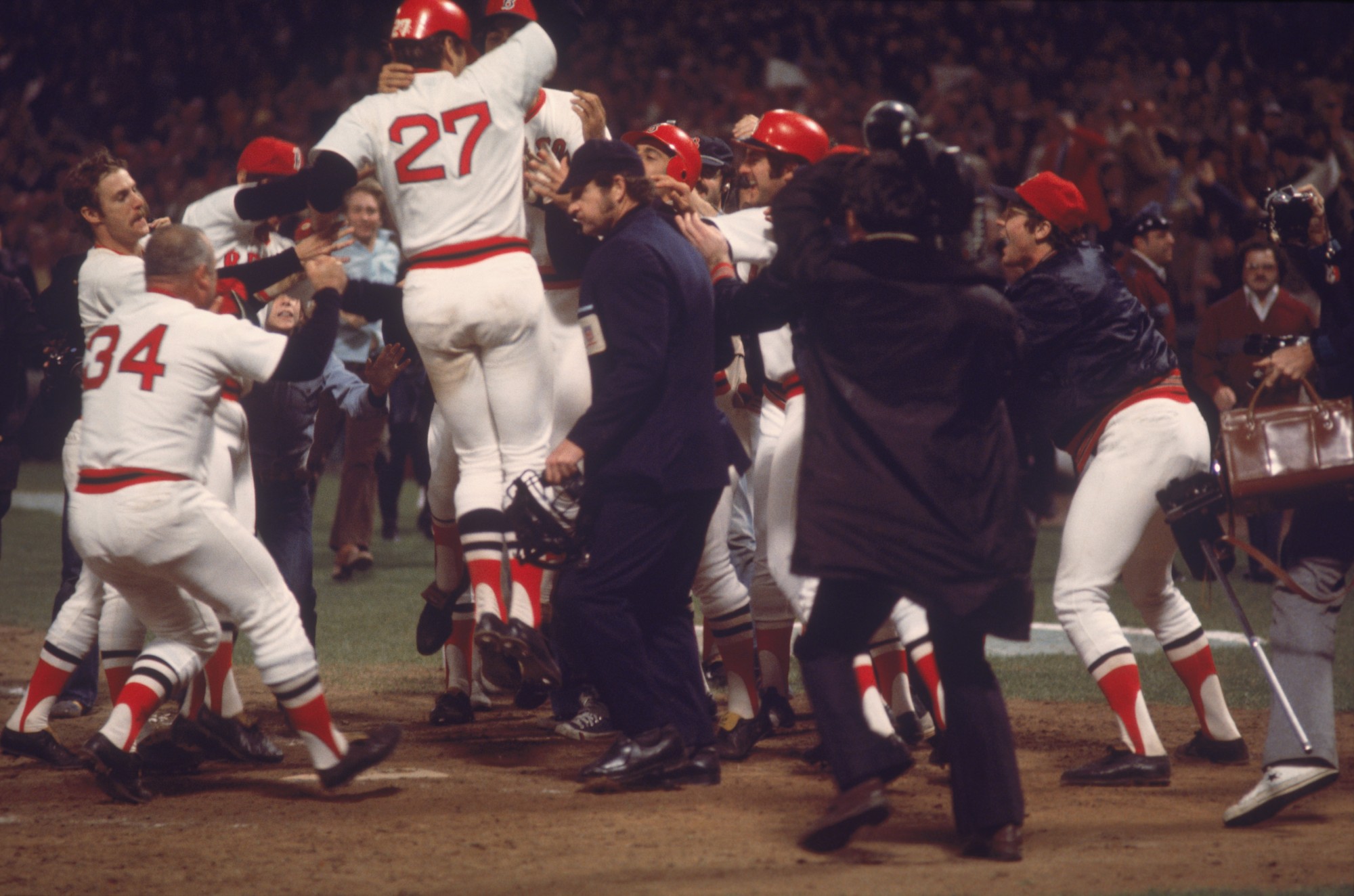
Carlton Fisk Home Run, 1975 World Series
In Game 6 of the 1975 World Series, Boston Red Sox catcher Carlton Fisk hit one of the most memorable home runs in baseball history. In the 12th inning, Fisk drove a pitch down the left-field line at Fenway Park. As the ball soared, Fisk famously waved his arms, willing it to stay fair, and it struck the foul pole, giving the Red Sox a 7-6 victory over the Cincinnati Reds. Though Boston would eventually lose the series in Game 7, Fisk’s dramatic, emotional homer became an iconic moment in World Series lore and a symbol of baseball’s passion. Getty Images / Nostalgic America, Inc.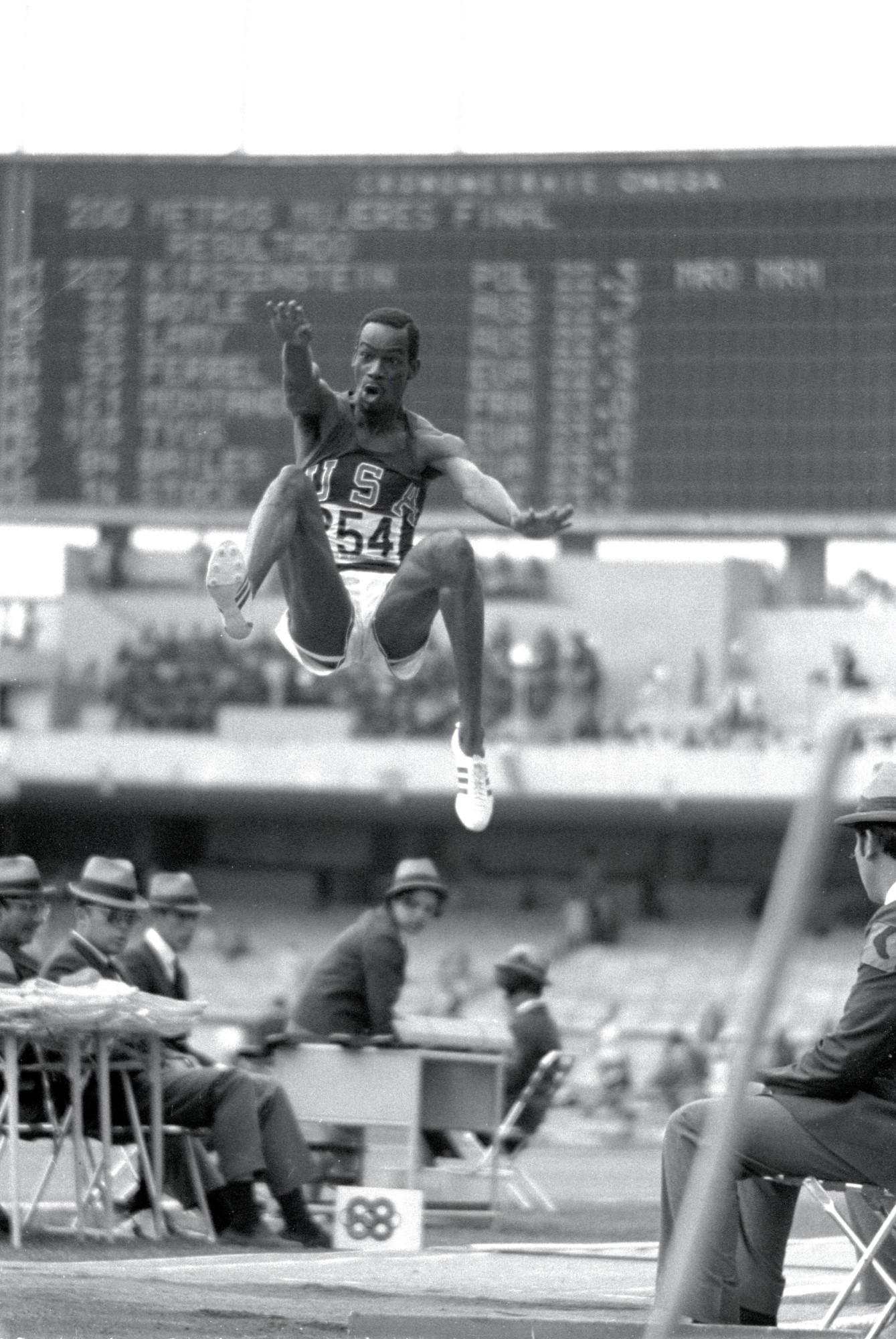
Bob Beamon's Long Jump Record (1968)
At the 1968 Mexico City Olympics, Bob Beamon shattered the world long jump record with a leap of 29 feet, 2.5 inches (8.90 meters). Beamon’s jump exceeded the previous record by nearly two feet, a margin never before seen in the sport. His performance was aided by Mexico City’s high altitude, which helped athletes achieve greater distances, but the jump was still considered astonishing. Beamon fell to his knees, overwhelmed by the realization of his achievement. The record stood for 23 years and remains one of the most iconic moments in Olympic history, symbolizing the potential for athletic greatness. Getty Images / Nostalgic America, Inc.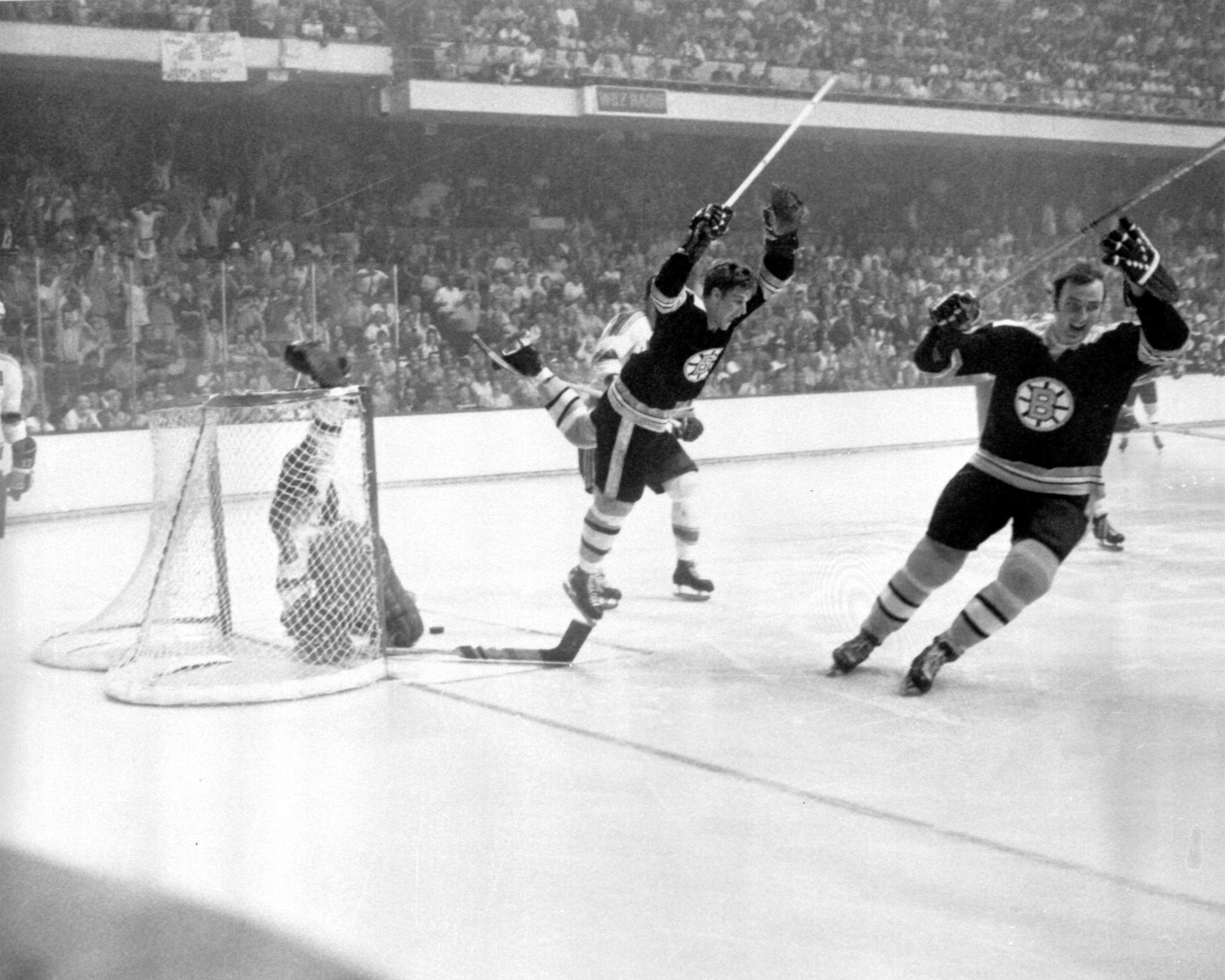
Bobby Orr's Winning Goal, Stanley Cup Final (1970)
On May 10, 1970, Bobby Orr scored the most famous goal in NHL history to win the Stanley Cup for the Boston Bruins. In overtime of Game 4 against the St. Louis Blues, Orr took a pass from Derek Sanderson and scored, leaping into the air after being tripped by a Blues defender. The image of Orr flying through the air with his arms raised became one of the most iconic photographs in sports. The goal completed the Bruins’ first Stanley Cup victory in 29 years, cementing Orr’s legacy as one of the greatest hockey players of all time. Getty Images / Nostalgic America, Inc.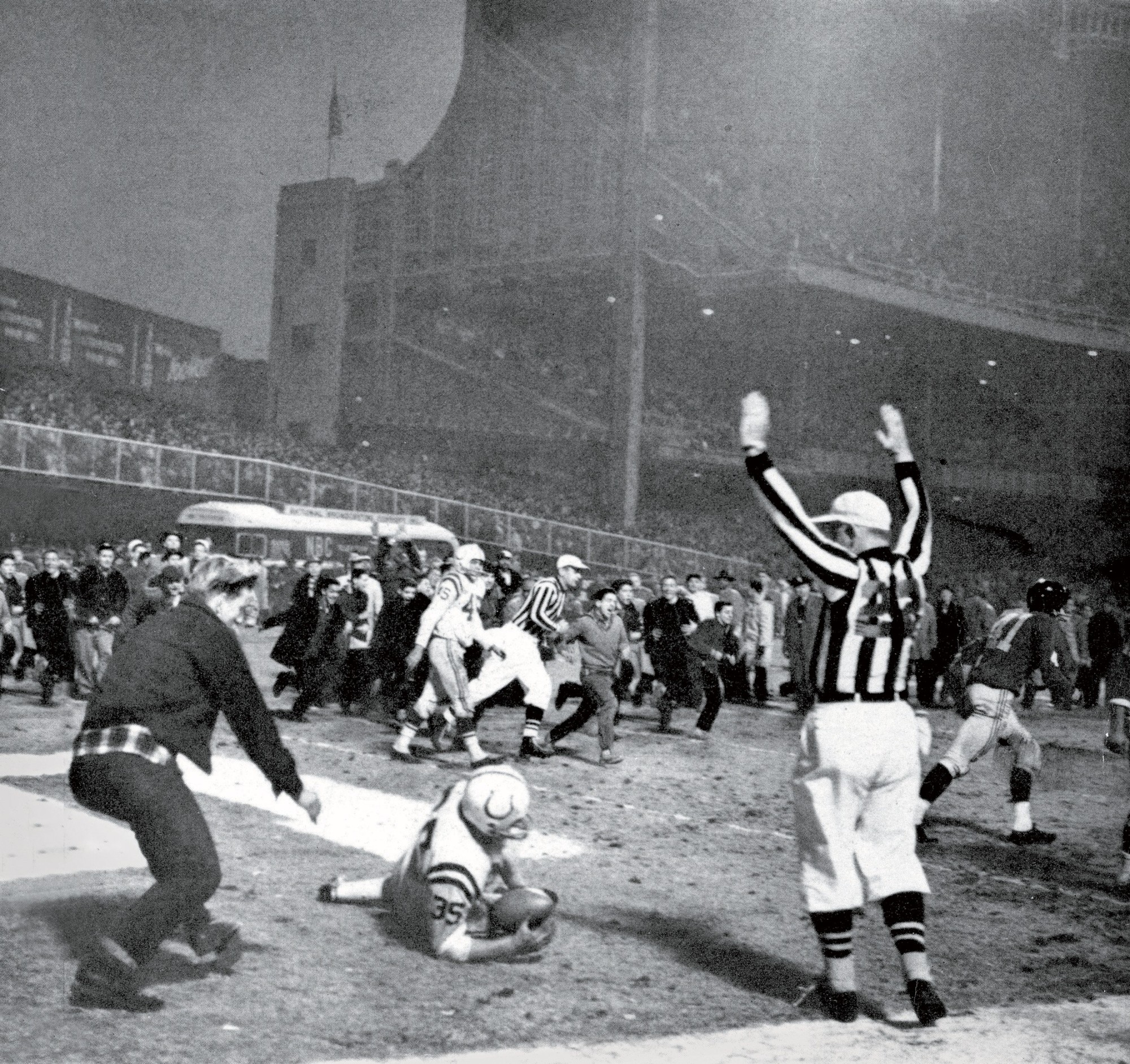
Don Ameche Touchdown, 1958 NFL Championship Game
Don Ameche's game-winning touchdown in the 1958 NFL Championship Game is remembered as a defining moment in football history. On December 28, 1958, the Baltimore Colts defeated the New York Giants 23-17 in sudden death overtime, thanks to Ameche’s one-yard run. This game, known as "The Greatest Game Ever Played," was the first NFL championship to be decided in overtime, bringing widespread attention to professional football. Ameche’s touchdown run marked the beginning of the NFL’s rise to prominence in American sports culture and showcased the drama and excitement of the sport to a national television audience. Getty Images / Nostalgic America, Inc.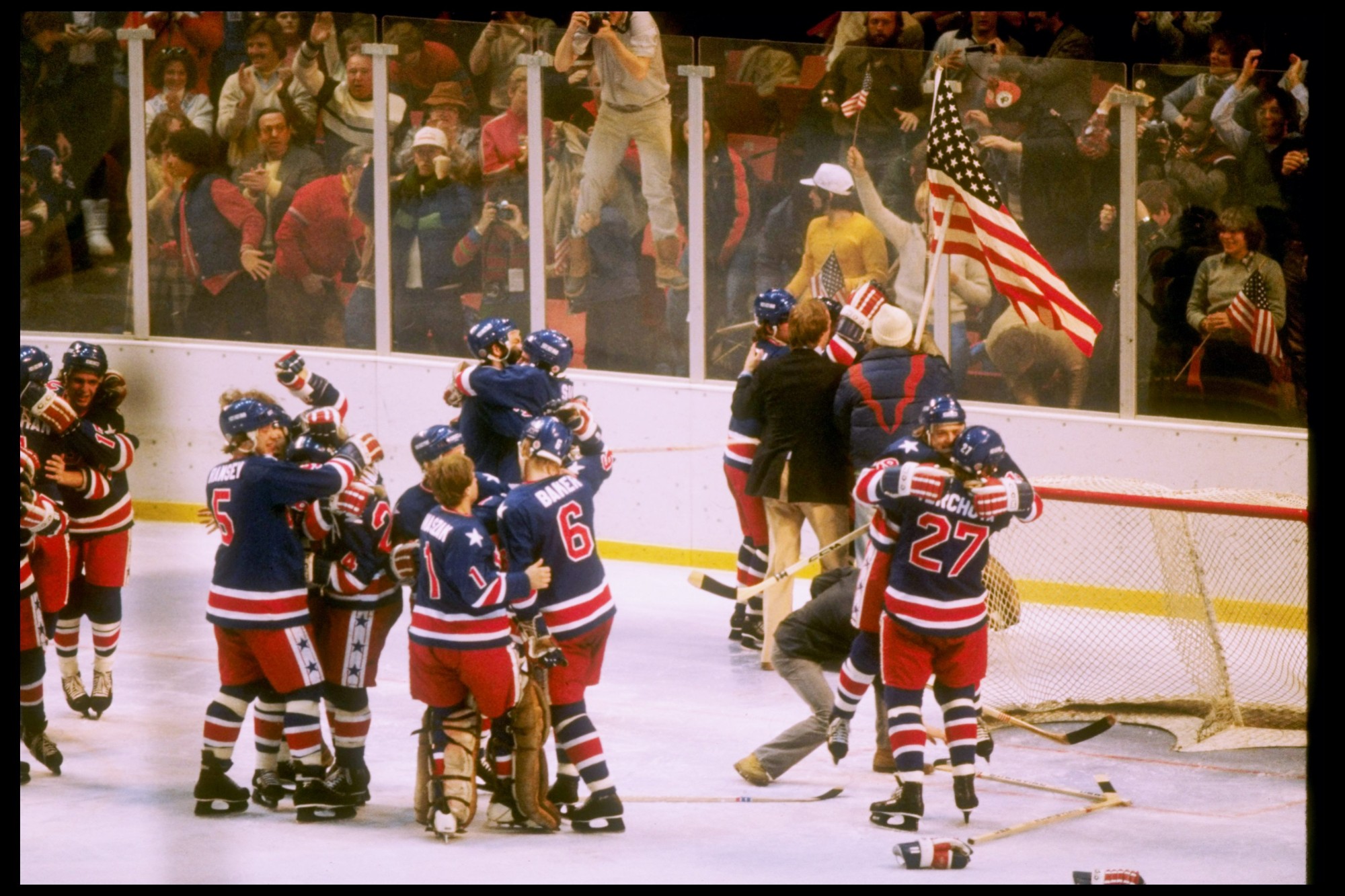
Miracle on Ice Game vs. Russia (1980)
The "Miracle on Ice" is one of the most iconic moments in sports history. On February 22, 1980, the U.S. men's hockey team, composed of amateur and college players, defeated the heavily favored Soviet Union 4-3 in the semifinals of the Winter Olympics in Lake Placid. The win shocked the world, as the Soviet team had dominated international hockey for decades. Al Michaels’ famous call, “Do you believe in miracles? Yes!” captured the spirit of the victory. The U.S. went on to win the gold medal, and the game symbolized American resilience and unity during a time of Cold War tensions. Getty Images / Nostalgic America, Inc.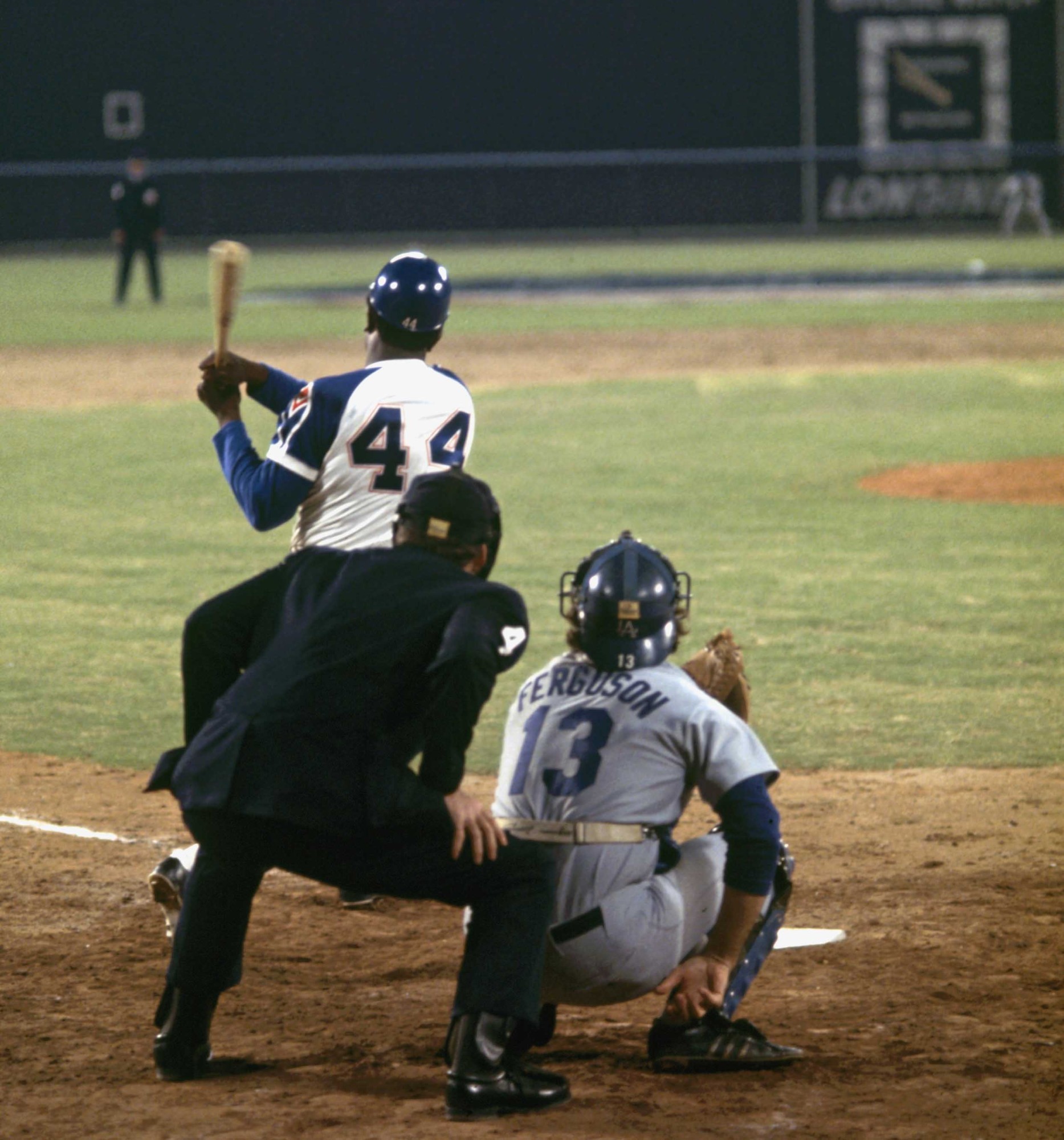
Hank Aaron Breaks Babe Ruth's Home Run Record (1974)
On April 8, 1974, Hank Aaron made history by hitting his 715th career home run, surpassing Babe Ruth's long-standing record of 714. Facing Al Downing of the Los Angeles Dodgers, Aaron connected for a home run that flew over the left-field wall at Atlanta’s Fulton County Stadium. The achievement came amid intense racial hostility and pressure, as Aaron faced hate mail and threats while approaching the record. His accomplishment was a triumph of perseverance and skill, redefining the home run king and cementing Aaron's legacy as one of the greatest players in baseball history. Getty Images / Nostalgic America, Inc.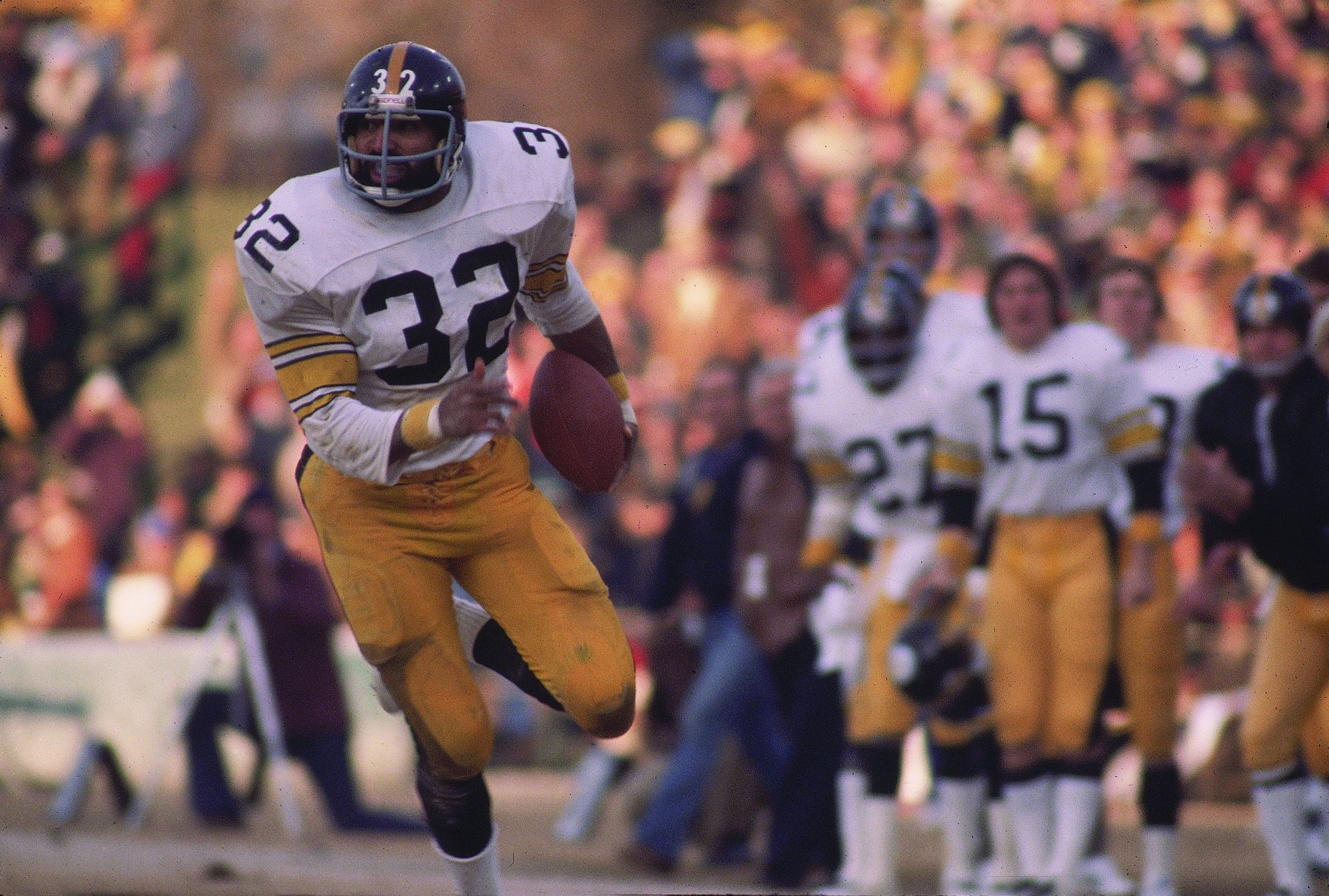
Franco Harris’ Immaculate Reception (1972)
The "Immaculate Reception" is one of the most famous plays in NFL history. On December 23, 1972, in a playoff game between the Pittsburgh Steelers and the Oakland Raiders, Franco Harris made a miraculous catch of a deflected pass from Terry Bradshaw, running it in for a game-winning touchdown. With just 22 seconds left, the play turned a likely loss into a 13-7 victory for the Steelers, marking their first playoff win. The play’s controversy and mystery, as many debated whether the ball had hit the ground, added to its legend, making it a defining moment in NFL lore. Getty Images / Nostalgic America, Inc.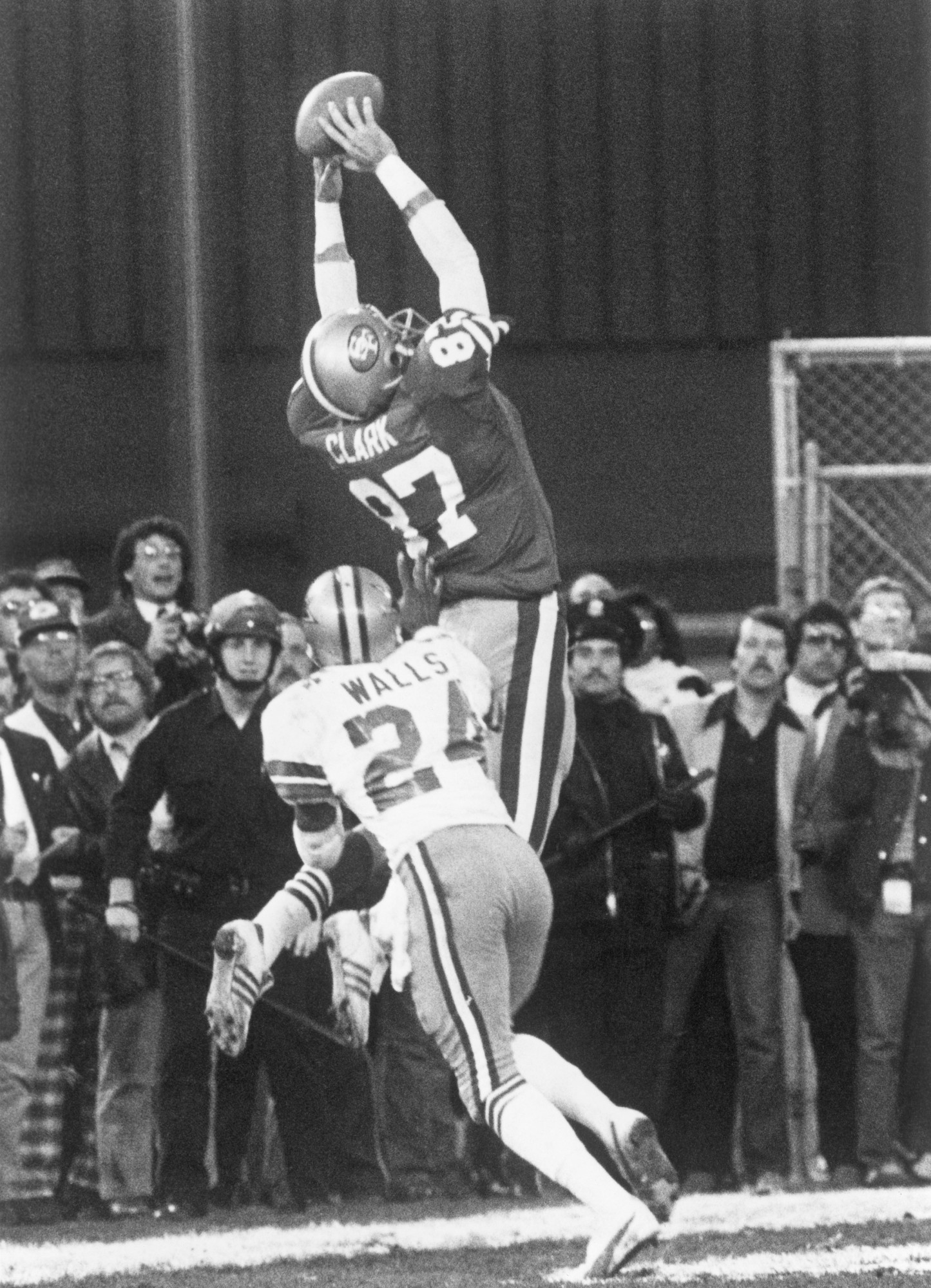
Dwight Clark’s “The Catch” (1982)
"The Catch" is a defining moment in NFL history, occurring on January 10, 1982, during the NFC Championship Game between the San Francisco 49ers and the Dallas Cowboys. With 58 seconds remaining, Joe Montana threw a high pass into the end zone, and Dwight Clark leapt to make a fingertip catch, securing a 28-27 victory for the 49ers. The play sent San Francisco to its first Super Bowl and marked the beginning of the 49ers’ dynasty throughout the 1980s. Clark’s catch became an iconic image of NFL history and solidified Montana’s reputation as a clutch performer. Getty Images / Nostalgic America, Inc.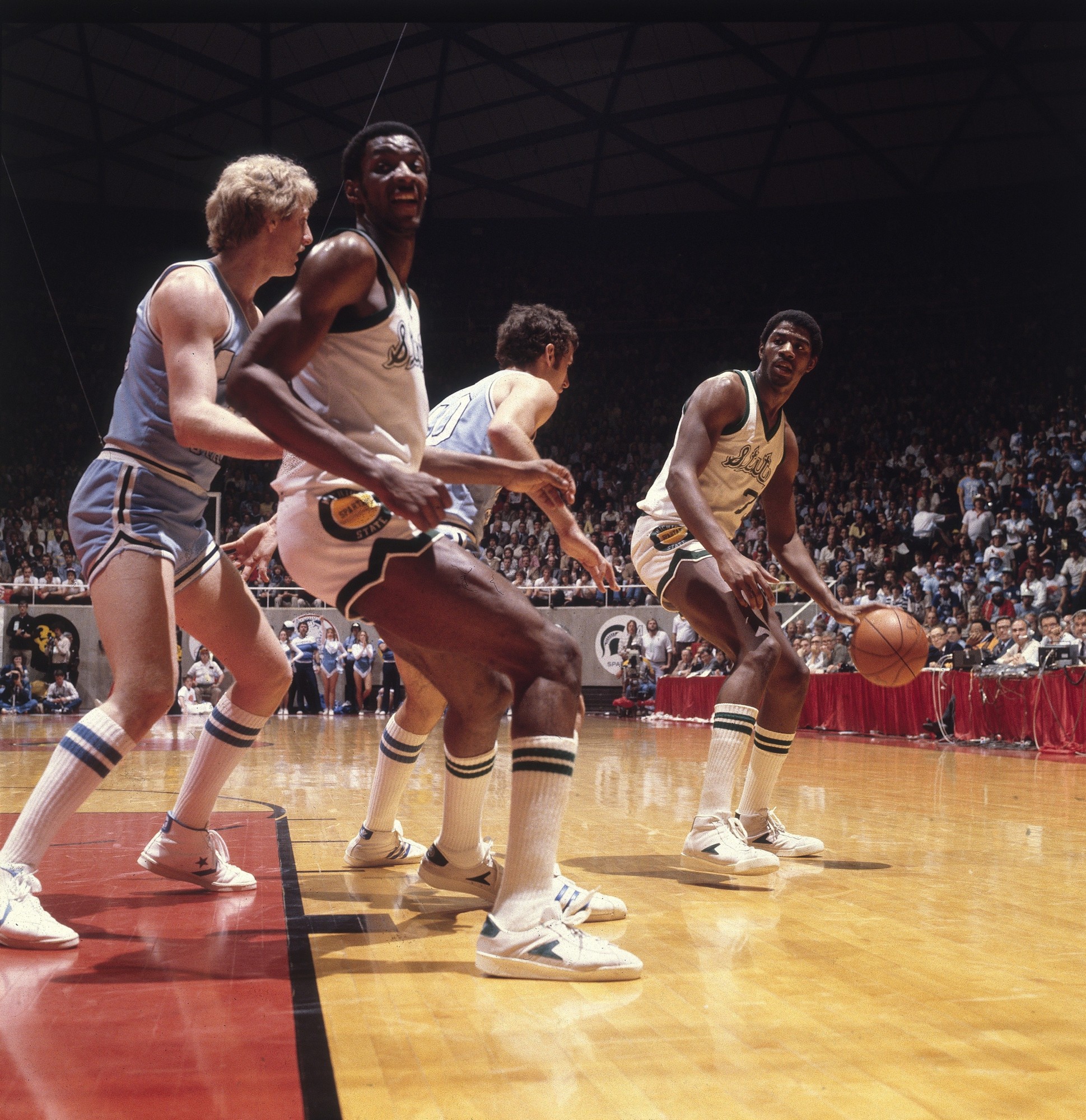
Larry Bird vs. Magic Johnson NCAA Final Game (1979)
The 1979 NCAA Championship game between Larry Bird’s Indiana State and Magic Johnson’s Michigan State is one of college basketball’s most famous matchups. It drew unprecedented television viewership, showcasing a rivalry that would define the NBA in the following decade. Magic’s Michigan State defeated Bird’s Indiana State 75-64, giving the Spartans their first NCAA title. This game marked the start of a lifelong rivalry and friendship between Bird and Johnson, who would go on to dominate the NBA in the 1980s. Their contrasting styles and competitive spirit brought renewed popularity and excitement to professional basketball. Getty Images / Nostalgic America, Inc.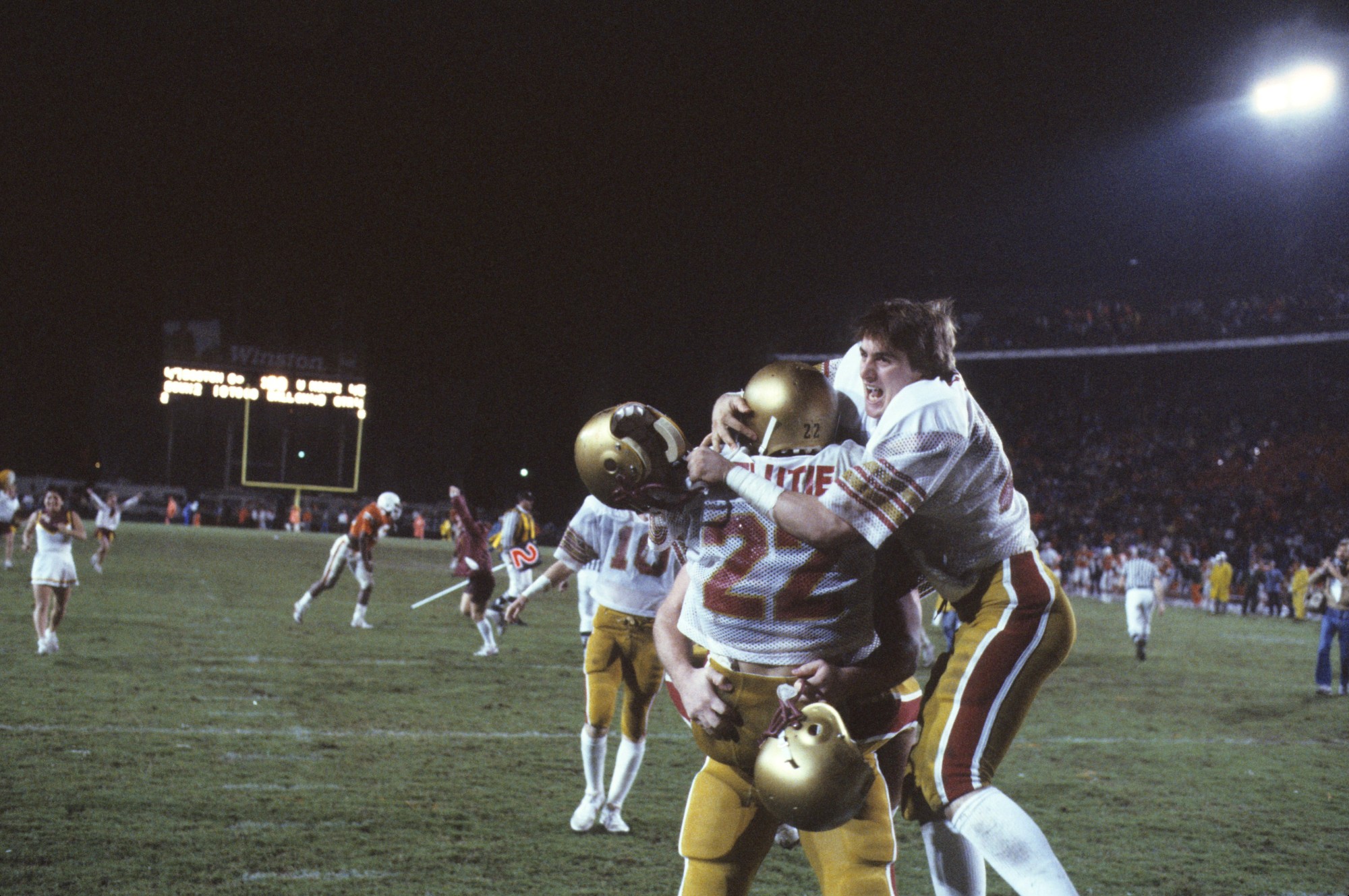
Doug Flutie’s Touchdown Pass vs. Miami (1984)
On November 23, 1984, Doug Flutie executed one of college football’s most famous plays with his "Hail Mary" touchdown pass to Gerard Phelan, securing Boston College’s 47-45 victory over Miami. With six seconds left and 63 yards to the end zone, Flutie launched a desperation pass that Phelan caught in the end zone, stunning the crowd and sealing the win. The play is often considered one of the greatest in college football history and helped Flutie win the Heisman Trophy. It remains a symbol of hope and unpredictability in football, showcasing Flutie’s determination and Boston College’s resilience. Getty Images / Nostalgic America, Inc.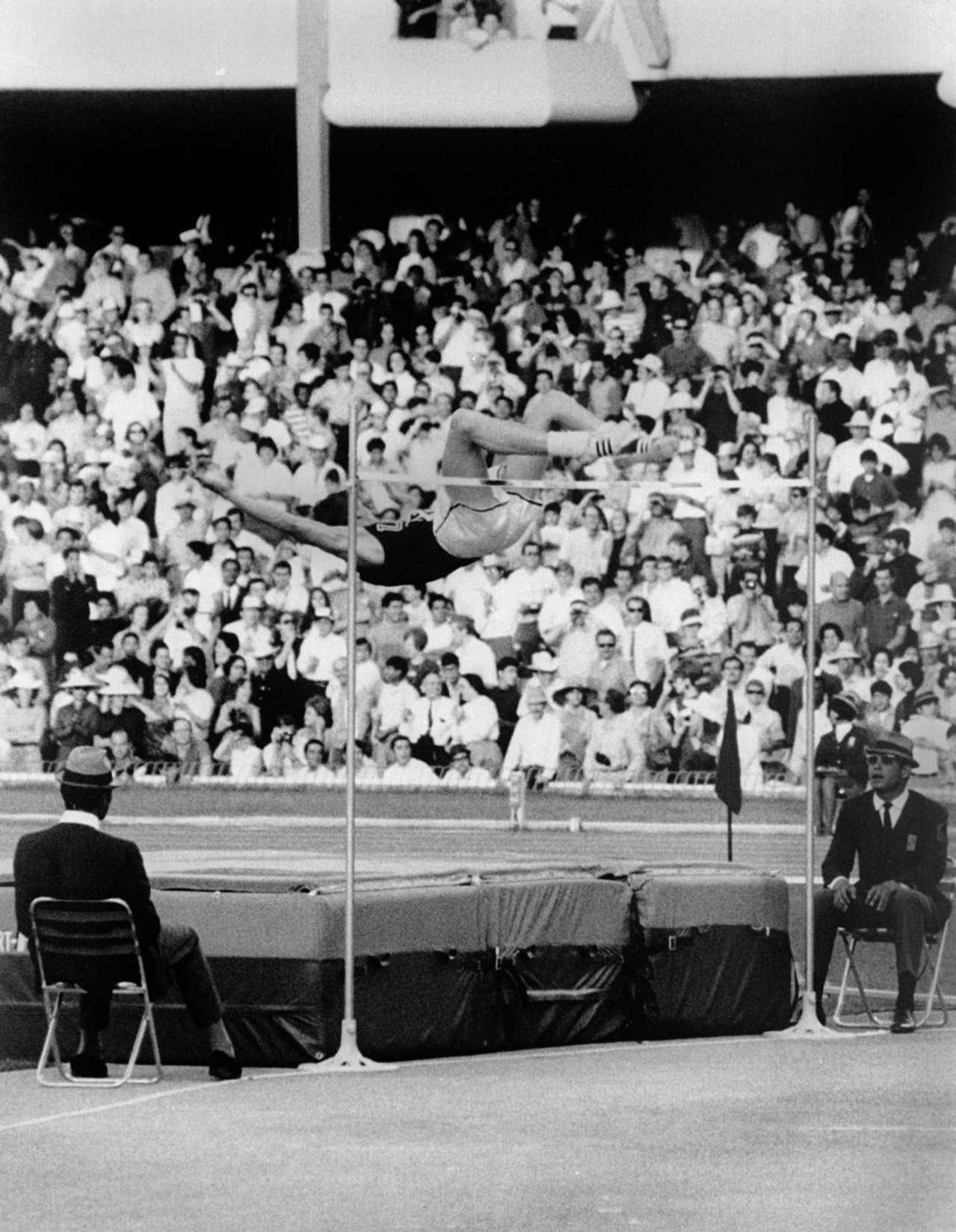
Fosbury Flop - 1968 Olympics
Dick Fosbury revolutionized high jumping with his unconventional technique, known as the "Fosbury Flop," during the 1968 Mexico City Olympics. By leaping backward over the bar, he reached a height of 2.24 meters (7 feet, 4.25 inches), winning the gold medal. Fosbury’s approach contrasted with the traditional straddle technique and was initially met with skepticism. However, his innovative method proved more efficient and became the standard for high jumpers worldwide. Fosbury’s success at the Olympics not only earned him the gold but also transformed the sport, inspiring a new generation of high jumpers to adopt the technique. Getty Images / Nostalgic America, Inc.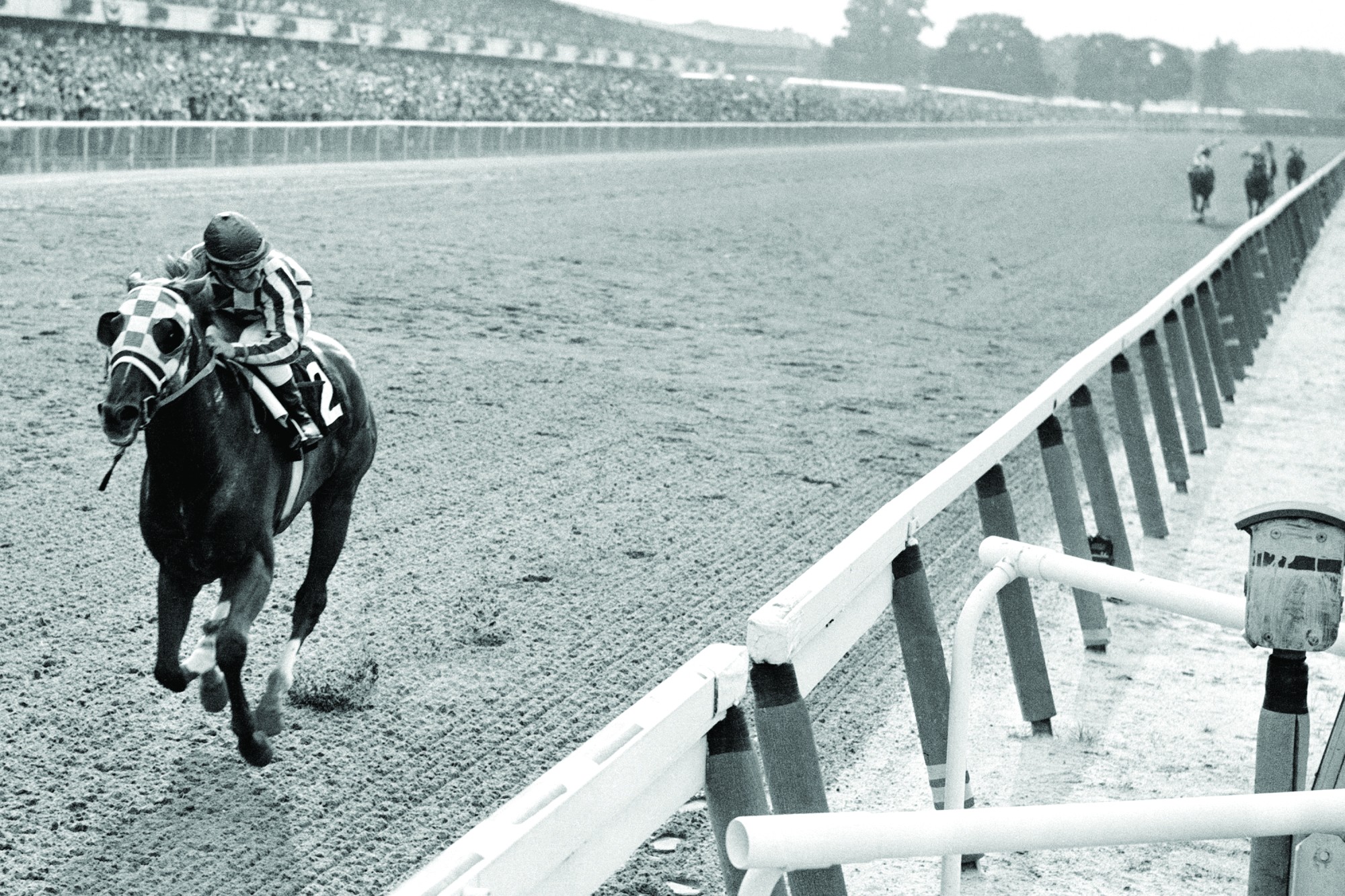
Secretariat Wins Belmont (1973)
Secretariat’s 1973 Belmont Stakes victory is widely considered the greatest horse race in history. On June 9, 1973, Secretariat won the Belmont by an astonishing 31 lengths, securing the Triple Crown—the first horse to do so in 25 years. His time of 2:24 for 1.5 miles remains a record. The dominant performance stunned spectators and became a symbol of athletic excellence, as Secretariat’s stride and speed seemed unmatched. The race cemented Secretariat’s legacy as one of the greatest racehorses of all time and is often regarded as a defining moment in the history of American sports. Getty Images / Nostalgic America, Inc.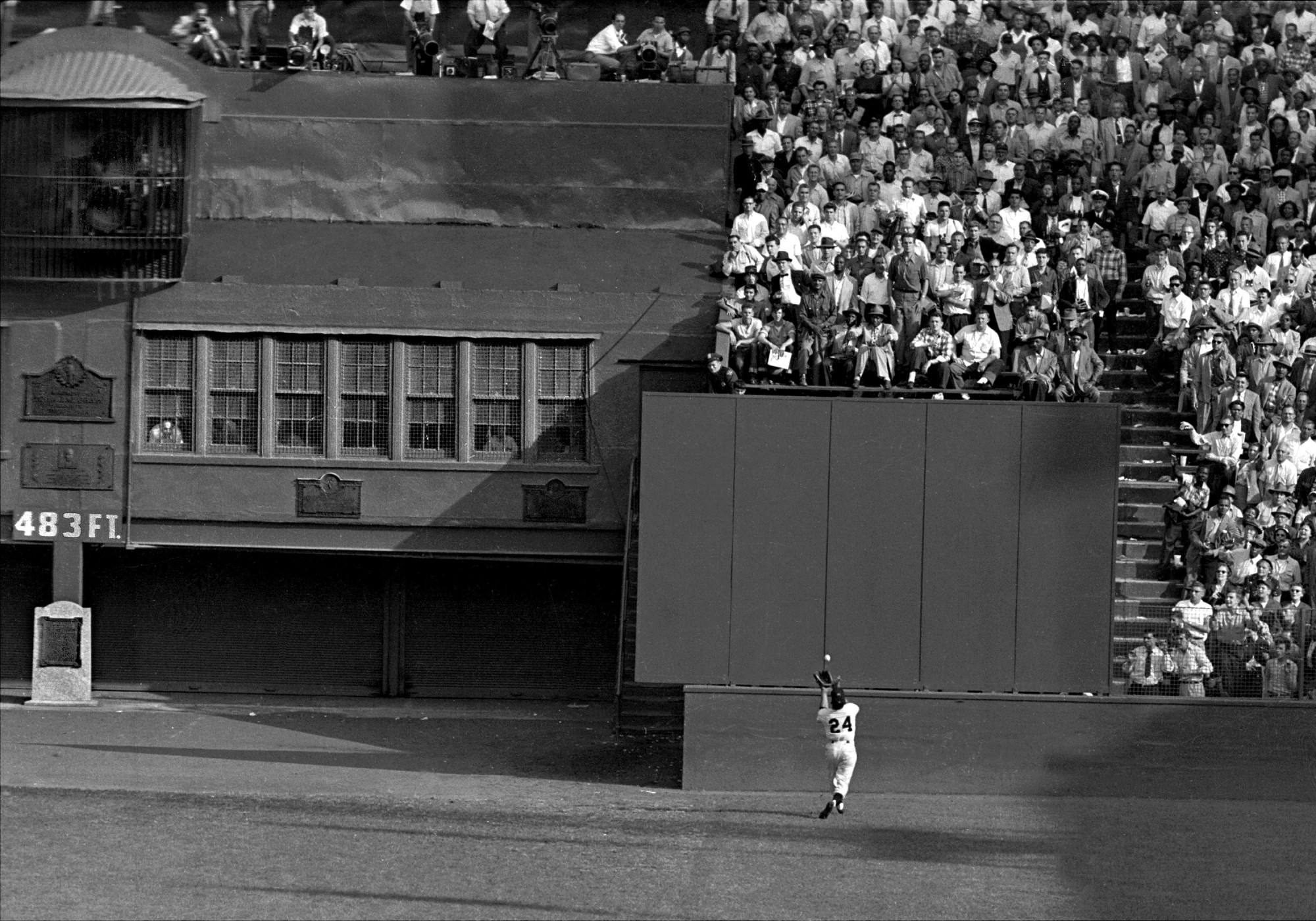
Willie Mays’ Catch of Vic Wertz (1954)
Willie Mays made one of baseball’s most iconic defensive plays during Game 1 of the 1954 World Series on September 29. With the game tied in the eighth inning, Cleveland Indians hitter Vic Wertz drove a deep shot to center field. Mays sprinted to make an over-the-shoulder catch near the Polo Grounds' wall, then quickly turned and threw the ball to prevent runners from advancing. The catch preserved the tie, and the New York Giants eventually won the game and the series. Mays’ spectacular defensive play became a symbol of his all-around greatness and remains a timeless highlight. Getty Images / Nostalgic America, Inc.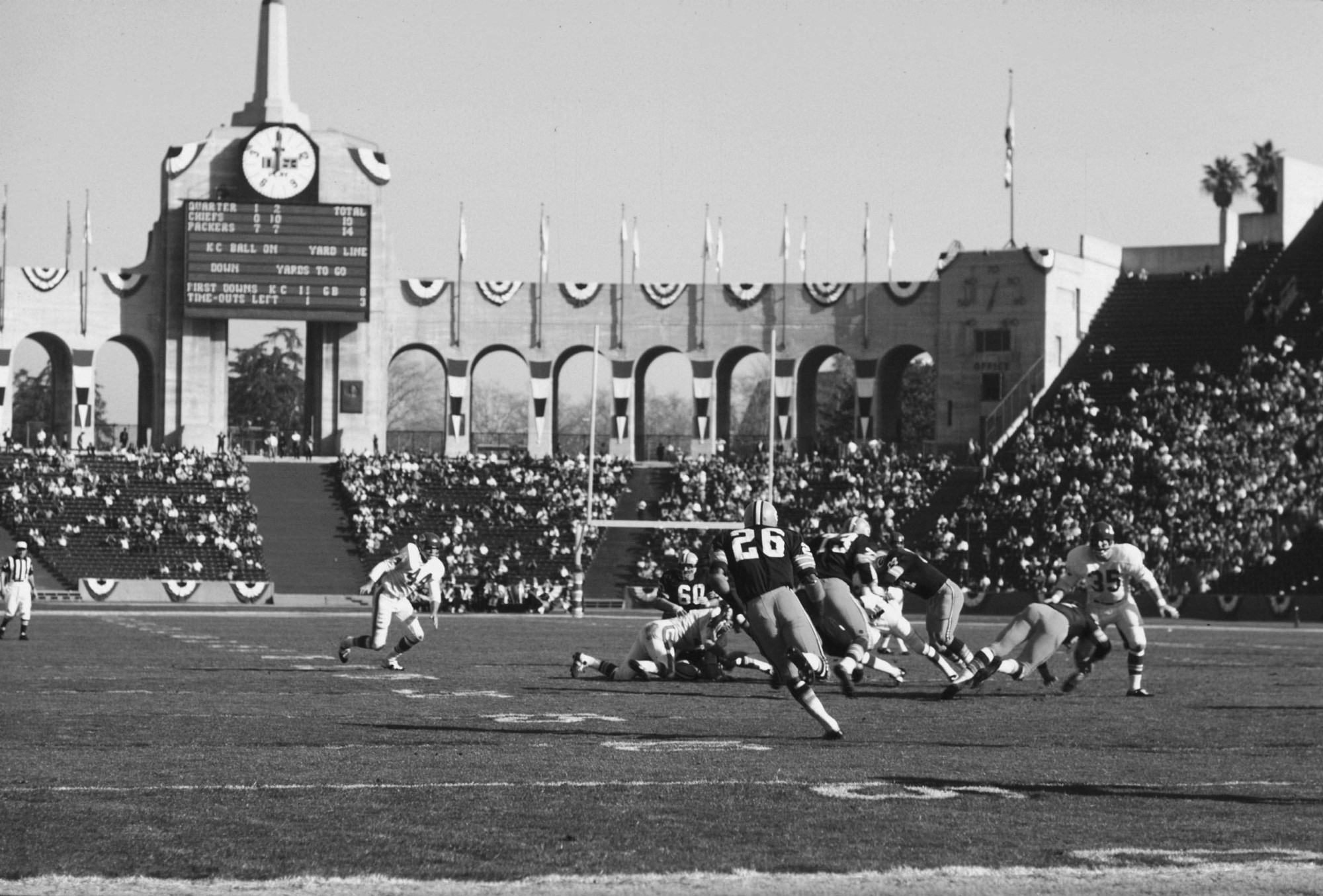
Super Bowl I (1967)
Super Bowl I, played on January 15, 1967, marked the beginning of the modern NFL era. The Green Bay Packers, led by coach Vince Lombardi, defeated the Kansas City Chiefs 35-10 at the Los Angeles Memorial Coliseum. The game, which pitted the champions of the NFL and AFL against each other, was not initially the spectacle it would become but set the stage for the Super Bowl’s evolution into a cultural phenomenon. Bart Starr was named MVP, and Lombardi’s Packers established their dominance. Super Bowl I was the first step in creating what would become America’s biggest sporting event. Getty Images / Nostalgic America, Inc.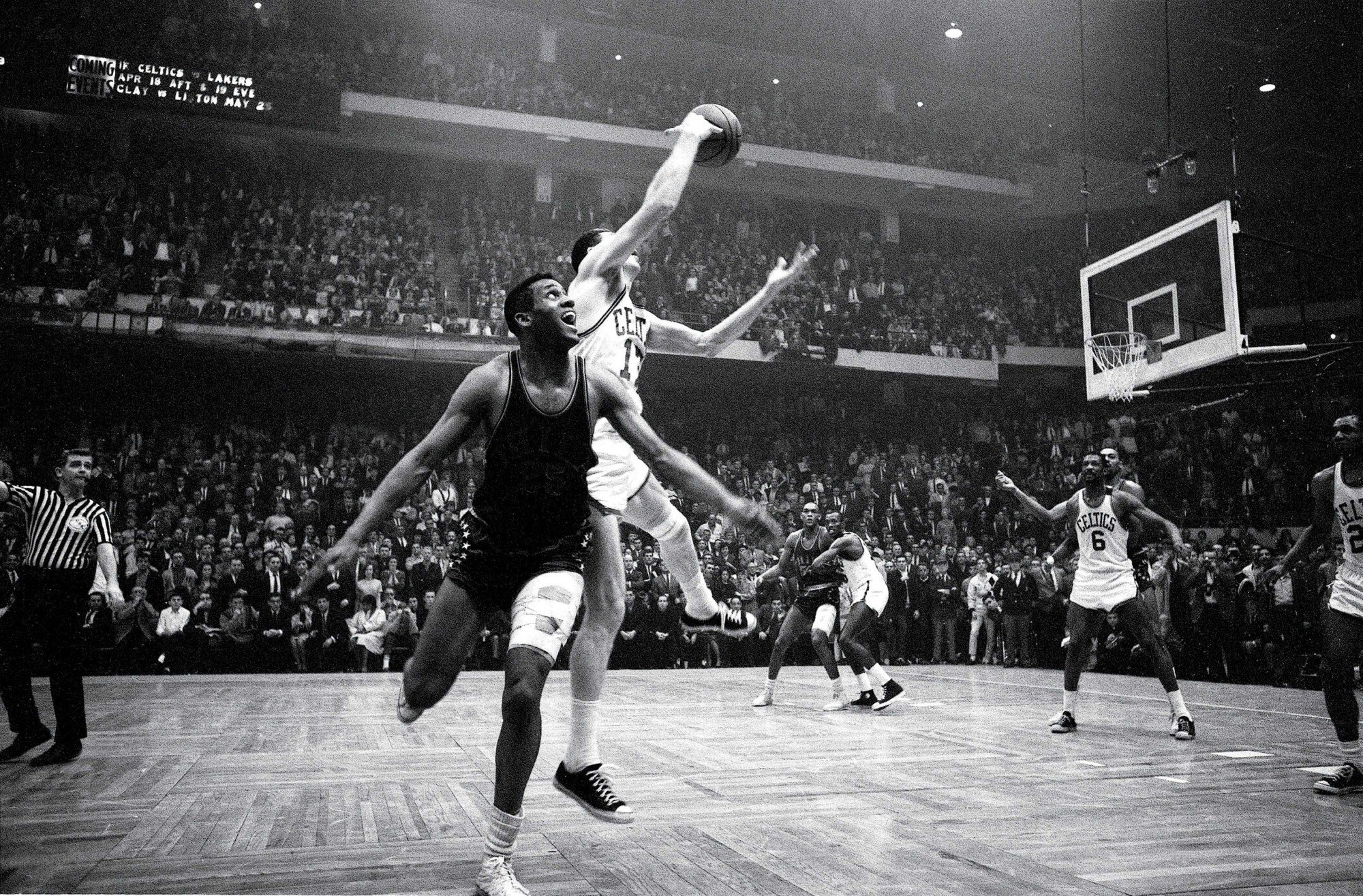
John Havlicek Steals the Ball (1965)
On April 15, 1965, in Game 7 of the NBA Eastern Conference Finals, John Havlicek made a legendary play that secured the Boston Celtics' victory over the Philadelphia 76ers. With the Celtics clinging to a one-point lead in the final seconds, Havlicek stole Hal Greer’s inbound pass, sealing a 110-109 win. Celtics announcer Johnny Most’s exclamation, “Havlicek stole the ball!” became one of the most famous radio calls in basketball history. The play epitomized the Celtics’ dominance of the 1960s and Havlicek’s reputation as a clutch performer, helping Boston advance to the NBA Finals and win another championship. Getty Images / Nostalgic America, Inc.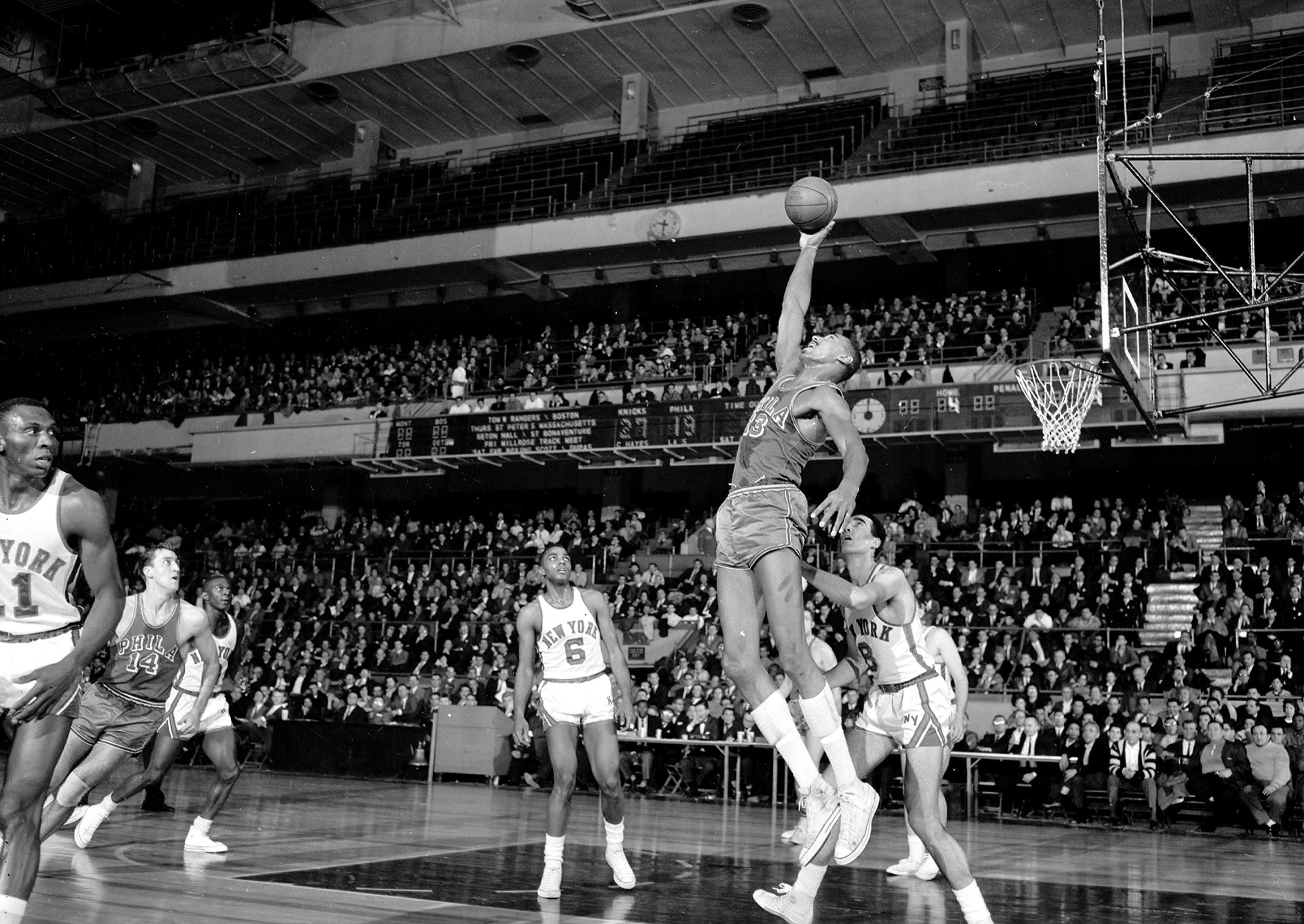
Wilt Chamberlain Scores 100 Points (1962)
Wilt Chamberlain made history on March 2, 1962, by scoring 100 points in a single NBA game for the Philadelphia Warriors against the New York Knicks. The game, played in Hershey, Pennsylvania, ended with a 169-147 Warriors victory. Chamberlain’s scoring feat remains unmatched in NBA history, a testament to his physical dominance and skill. Although the game was not televised and only a few photographs exist, the moment became legendary, symbolizing Chamberlain’s unparalleled scoring ability. The record is one of the most iconic achievements in basketball, reflecting Chamberlain’s impact on the sport and his place among the game’s greats. Getty Images / Nostalgic America, Inc.